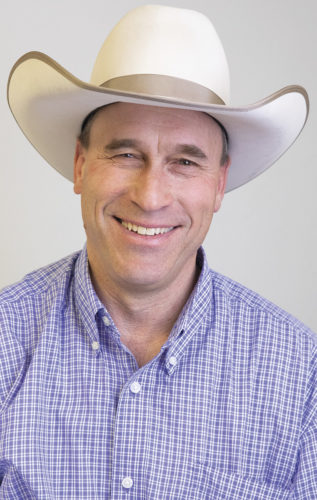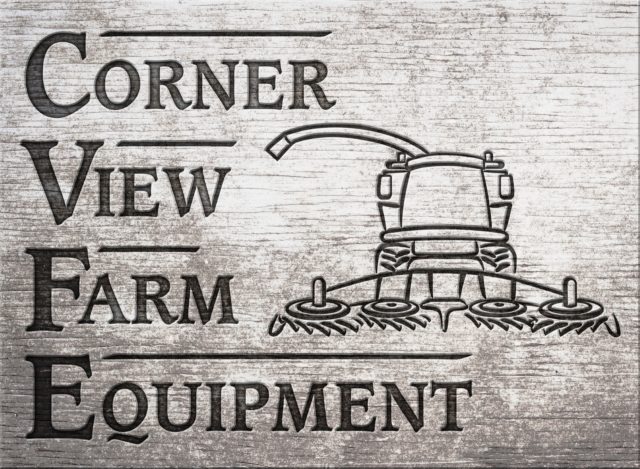The 10 rodeo performances, with all of the accompanying trappings, would be spectacular enough if the event was held in some less exotic locale like – oh, I don’t know – Dillon, Montana, or New Orleans.
But when you throw in the absolute, everything-over-the-top opulence and decadence of Sin City, the result, at least from my perspective, is mind-blowing sensory overload. Fremont Street has probably turned more folks into salt pillars than Sodom and Gomorrah ever hoped to.
All of this is not to say that the trip wasn’t worthwhile. It was worth it just for the sake of experiencing the most entertaining and efficiently run rodeo in the world. Maybe the best perk was meeting cowboys and country folk from all over the country.
For about 50 weeks of the year, speaking as someone who lived for awhile on a remote ranch in northeastern Nevada and who has relatives who still farm and ranch in rural Nevada, I’d just as soon Las Vegas didn’t exist.
The politics and big city problems that are part and parcel of Vegas don’t really mesh with the real life of Great Basin ranching. However, for the first two weeks in December, Las Vegas is Cowboy Town.
During that stretch of time, everywhere you go in the city, you’ll find small-town country folk getting a taste of the Vegas lights and life. In every elevator and every restaurant in every casino, you’ll find someone with a beaver-felt lid and Wranglers.
Western-style vests, emblazoned with the Gold Coast or South Point logos on the back, are worn like badges of honor. If you’re the slightest bit cowboy, you won’t be able to go anywhere without meeting someone you know. You may not have known them five minutes prior to meeting them on the escalator, but you dang sure know them as a friend a couple minutes later. That’s one of the perks of our lifestyle. Some way or other, we’re all in this together.
A friend of mine and I sat down to breakfast early one morning with a guy from Arizona. Morris was in the car business, but he used to run a pretty good-sized herd of cows. We swapped a few stories of the joys of running cattle on public lands. He told us of a particular incident that, in part, led him to give up the cow business.
One day he got a call from a Forest Service officer. One of his bulls was attacking some campers in one of the campgrounds adjacent to his allotment. He couldn’t imagine one of his critters doing such a thing, but he loaded up his horse and proceeded to the scene of the crime.
When he arrived, he found a bull named Hector, with the aluminum frame and the shreds of canvas of an eight-man tent wrapped around his neck, wandering around the creek bottom, grazing in relative peace. The former occupants of the tent were quivering in fear in their car.
It turns out that Hector had been orphaned as a calf, and his kids had raised him on a bottle. The only reason he was still around was because he never got around to cutting him as a calf, so he figured he’d keep him as an extra bull. He fetched a bucket of grain from the back of the pickup and, with no effort at all, chummed Hector into the front of his trailer.
He loaded his horse and rescued the terrified campers, whom he invited to town to treat them to lunch at the local café. After lunch, they went to the nearest camping supply store, and he bought them a new tent. That was several years ago.
He still keeps in touch with them. But the Hector-in-the-tent experience was a link in the chain that led him to get out of the cow business. He figured that his city camper friends could just as easily have been anti-cowboy vegetarians who would relish a chance to hang an environment-destroying, earth-hating rancher out to dry.
My buddy and I mused afterwards that it was probably a good thing Morris changed professions. For one thing, how good could his cattle be if he was using a leftover leppy for a herd sire? But, more importantly, he was now an ambassador for the cowboy cause in the spotlight of the urban-rural interface.
That is often difficult terrain to traverse. It’s a role that more of us should fill – but are not savvy or patient enough to know what to do. Just try to spread the agriculture gospel on the Vegas Strip any time besides the first two weeks in December. I think “Hector in a Tent” may be playing at Circus Circus. Viva Las Vegas! FG









